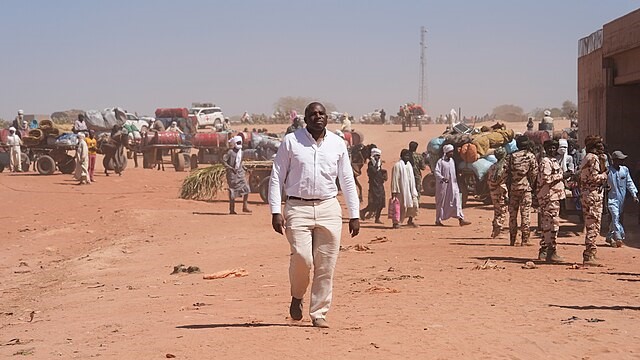By Idriss Mahamat Abdelkerim
ADRÉ, CHAD — The midday sun beats down on the dusty border town of Adré in eastern Chad, just a few miles from the violence-ravaged Darfur region of Sudan. Here, the scent of simmering millet and the sound of laughter rise from the sprawling tents of the Ourang refugee camp—an unlikely cradle of hope.
What was once barren land has become a lifeline for over 600,000 refugees and internally displaced people (IDPs), most of whom fled conflict in neighboring countries. Against staggering odds and amid its own economic and environmental challenges, Chad has emerged as one of Africa’s most quietly powerful humanitarian actors.
“Chad has done what many richer nations struggle with—opening its doors and holding them open,” says Marie-Claire Mbailao, a humanitarian coordinator with the UNHCR in N’Djamena. “The country is not only providing shelter, but building pathways to recovery.”
A Long Tradition of Hospitality
Chad has been a haven for refugees for decades, hosting people fleeing unrest in Sudan, the Central African Republic, Nigeria, and Cameroon. The majority of these arrivals settle in eastern and southern provinces where communities, despite limited resources, often welcome them with humility and generosity.
That spirit of hospitality is now reinforced by policy. In 2021, the Chadian government adopted the Global Compact on Refugees and committed to integrating refugees into national systems like health and education—a move widely praised by the United Nations High Commissioner for Refugees (UNHCR).
“Refugees here don’t just survive—they participate,” says Idriss Youssouf, a school principal in the town of Maro, where refugee children now study alongside locals. “Some of our best students come from across the border.”
Women at the Heart of Recovery
At a community center in Goré, near the Central African Republic border, women gather to weave mats, bake bread, and take literacy courses. Many of them are survivors of conflict and displacement, rebuilding not only their homes but their sense of dignity.
With support from the World Food Programme (WFP) and CARE International, women-led cooperatives have become central to recovery efforts. Through small grants and vocational training, they are producing food, clothing, and handicrafts for local markets.
“Learning how to sew gave me more than a skill—it gave me purpose,” says Amina Oumar, a refugee from the CAR. She now employs three other women in her workshop and hopes to expand.
Challenges and the Climate Crisis
Chad’s humanitarian achievements are not without strain. The influx of displaced people is happening against a backdrop of extreme climate vulnerability. Droughts, desertification, and dwindling water sources continue to threaten livelihoods in already-fragile regions.
The International Organization for Migration (IOM) estimates that over 500,000 Chadians are internally displaced due to climate-related factors. To address these twin crises, Chad has partnered with the World Bank on resilience initiatives that include solar-powered water systems, climate-smart agriculture, and reforestation programs.
“We are learning to adapt—just as our grandparents did—but we need global support to keep going,” says Mahamat Nour, an environmental officer in Lake Chad province.
Toward Durable Solutions
In April 2023, Chad hosted a landmark International Conference on Solutions for Refugees and Host Communities, in partnership with the UNHCR and the African Union. The event spotlighted Chad’s unique approach: integrating refugees into national development plans rather than isolating them in camps.
Already, pilot projects are transforming refugee settlements into semi-permanent towns with access to public services, job opportunities, and social cohesion programs.
“This is not charity—this is investment in human potential,” said Prime Minister Succès Masra at the conference. “Our hospitality is not weakness. It is our strength.”
A Beacon in a Troubled Region
As conflicts rage across the Sahel and political transitions continue across Central Africa, Chad stands out as a beacon of relative stability and compassion. Its efforts have not gone unnoticed: the country was named a Model Refugee-Hosting Nation by the UN in 2022.
For 15-year-old Musa, who fled Sudan with his family last year and now plays soccer with Chadian and Cameroonian friends in a dirt field near Koufroun, the future feels possible again.
“I want to be a doctor,” he says, without hesitation. “In Chad, I feel like I can become one.”
From tents to towns, and from trauma to transformation, Chad’s story is a testament to what can be achieved when a nation embraces humanity—not as a burden, but as a bond.
Sources:


